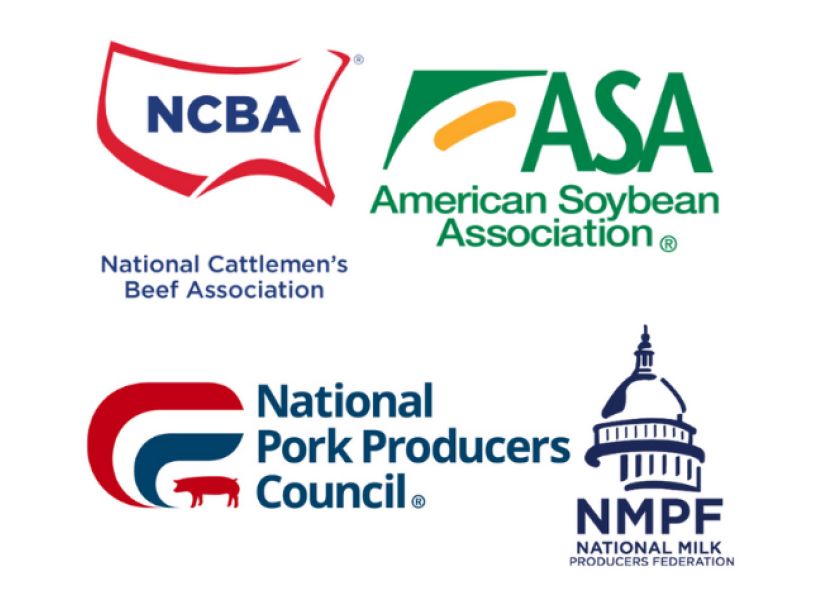Farmers and Ranchers Reject Rep. Victoria Spartz’s Anti-Checkoff Amendment

The producer-led organizations representing several of Indiana’s top commodities announced their joint opposition to an amendment introduced by Rep. Victoria Spartz (R-IN) that attacks commodity checkoff programs. The amendment was introduced to the Agriculture, Rural Development, Food and Drug Administration, and Related Agencies Appropriations Act of 2024, the legislation that funds the U.S. Department of Agriculture (USDA).
National Cattlemen’s Beef Association (NCBA): “Rep. Spartz’s amendment targets programs like the Beef Checkoff and is a direct attack on America’s farmers and ranchers,” said NCBA Policy Division Vice Chair Tim Schwab, an Indiana cattle producer. “The Beef Checkoff conducts critical nutrition and food safety research, strengthens consumer demand for beef, and helps farms and ranches stay in business. I hope Rep. Spartz withdraws her amendment and sides with Indiana agriculture over animal rights activists.”
American Soybean Association (ASA): “We were surprised to learn of Congresswoman Spartz’s amendment. Just 708 of our nation’s 500,000-plus soybean farmers requested to vote on whether to continue the soybean checkoff during the most recent request for referendum back in 2019. That’s just over 1/10th of one percent of soybean farmers. That means hundreds of thousands of farmers continue to support the Soy Checkoff. They understand the significant role the checkoff plays in developing and protecting markets for their crops, conducting research and promotion to sustain their livelihoods and the environment, and keeping U.S. soy available domestically and competitive globally,” says Daryl Cates, ASA president and Illinois soy farmer. “I am pleased to have served on the United Soybean Board, which administers the Soy Checkoff (with rigorous USDA oversight), and have seen firsthand both how the checkoff functions and its ongoing benefits for farmers and others. I hope Rep. Spartz will reconsider her amendment and support the checkoff, which is backed by the overwhelming majority of soybean farmers in Indiana and around the nation.”
National Pork Producers Council (NPPC): “Pork producers overwhelmingly support their checkoff and understand the immense value it brings to pig farmers across the country,” said NPPC CEO Bryan Humphreys. “The checkoff provides critical research and market promotion that are critical to producers’ success and livelihood.”
National Milk Producers Federation (NMPF): “The Dairy Research and Promotion Program, founded and governed by dairy farmers, continues to yield meaningful benefits to producers like me today. Independent analysis has found that the checkoff has increased demand for dairy here at home and abroad,” said NMPF Board Member and Indiana dairy producer Brian Rexing. “Today, the dairy checkoff is supporting dairy farmers as we seek to further our environmental stewardship gains while providing nutrition to global customers. I urge members of Congress to reject any misguided amendments that would prevent farmers from continuing to lead these important self-help initiatives.”
Indiana Beef Cattle Association (IBCA): “As a 4th generation cattle producer, I see the critical role that checkoffs play in driving demand and better prices for all commodity producers,” said IBCA Executive Vice President Brian Shuter. “It's concerning when a representative takes a personal position and chooses not to represent their constituents and attacks a program that a large percentage of our Indiana producers support.
Together, the National Cattlemen’s Beef Association, American Soybean Association, National Pork Producers Council, and National Milk Producers Federation represent farmers that account for $5.45 billion of Indiana’s agricultural products. Additionally, soybeans, beef, pork, and milk account for three of Indiana’s top five agricultural commodities.
Background
The Spartz amendment would prohibit USDA from using any tax dollars to administer commodity Checkoff programs. This legislation is completely frivolous and wastes congressional time because no taxpayer dollars are being used to administer Checkoff programs. Instead, these programs are funded entirely by those who pay into them, not American taxpayers. USDA oversees 22 commodity Checkoff programs that boost demand for products like beef, eggs, lamb, cotton, blueberries, honey, mangos, peanuts, mushrooms, watermelons, dairy, cotton, popcorn, and even Christmas trees. Farmers and ranchers invest in these programs and that funding supports agricultural research and promotional efforts.







